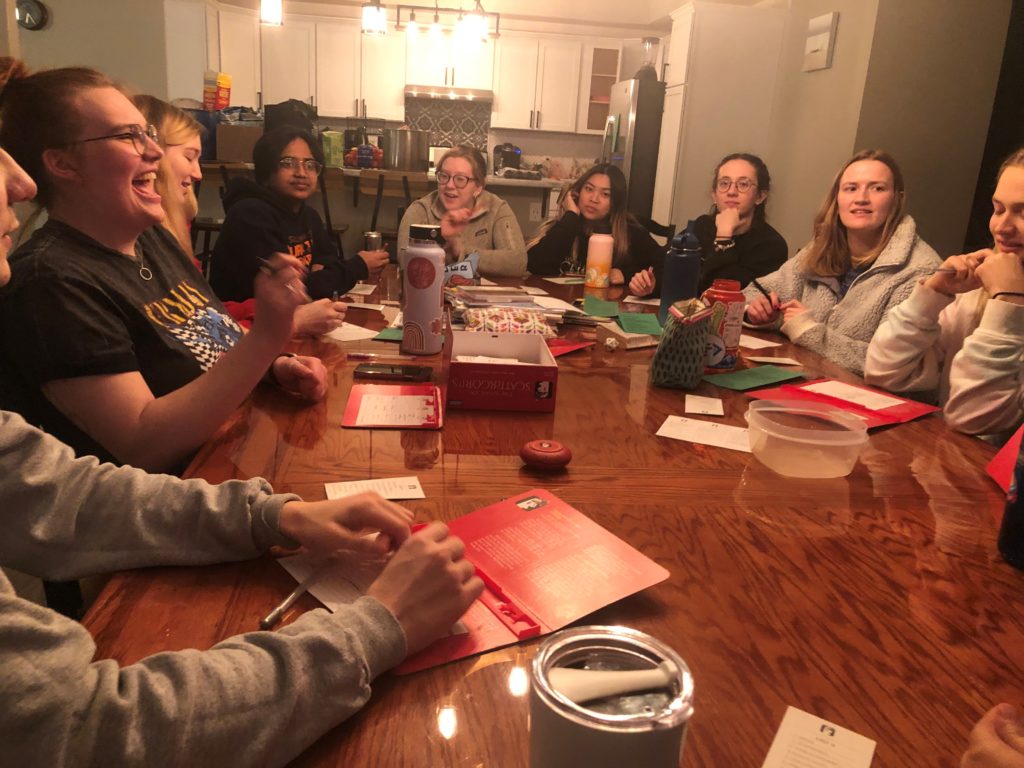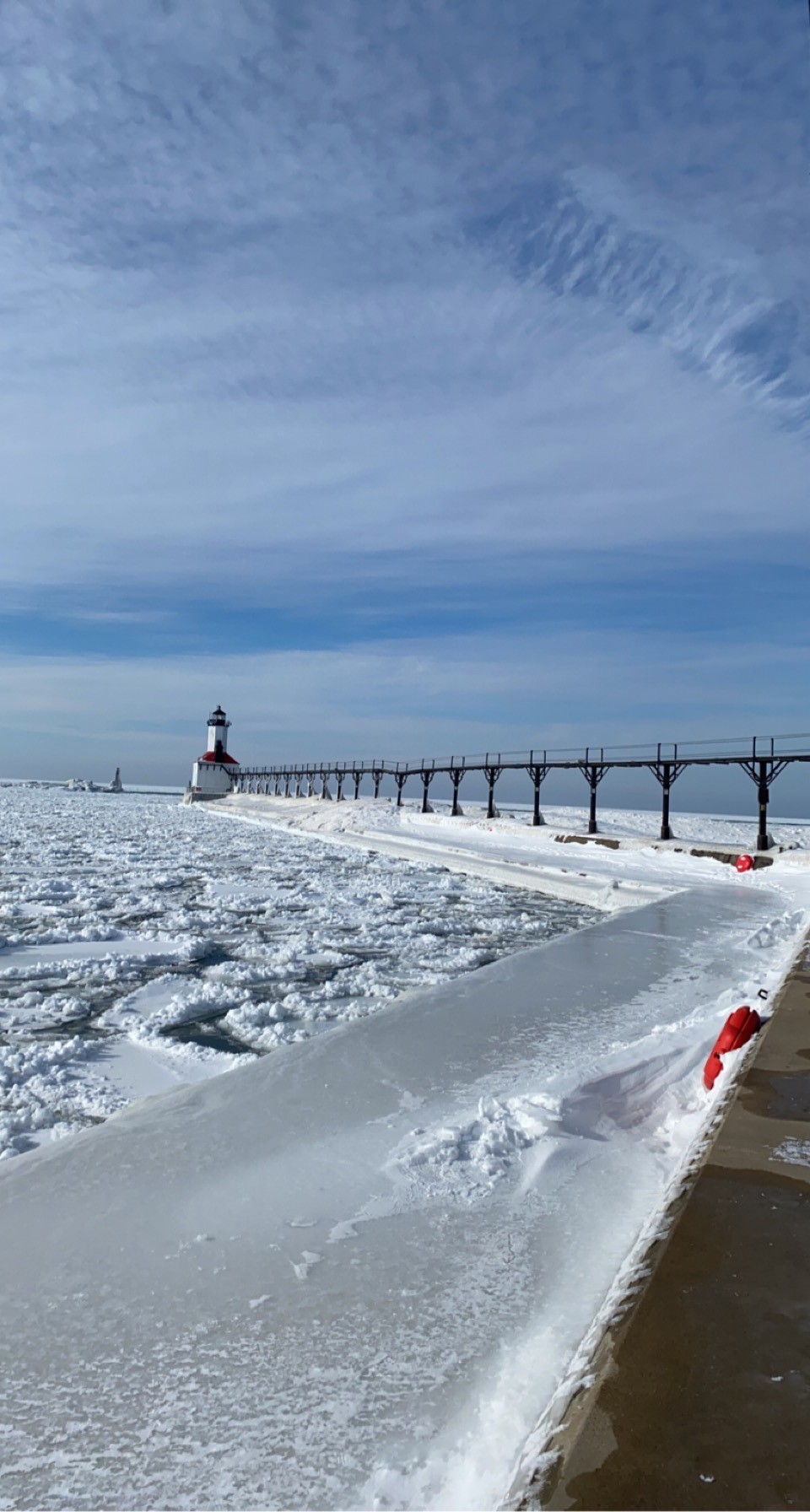As I sit here to write this blog post, the most recent “big” Amate House event that comes to mind is Winter Retreat. And it would be relatively easy to review our four days in Michigan City, IN, and go into detail about what kinds of sessions take place on an Amate retreat. But I don’t need to ruin the surprise for prospective fellows or bore alumni and supporters. So perhaps I could talk about having different expectations for Winter Retreat after the Fall Retreat took me somewhat by surprise- I had only previously attended Catholic retreats, and the Fall Retreat was not solely oriented around God. In fact, the unofficial theme of Winter Retreat was Vocation/Discernment/”The Future.”
However, as I sat back and thought about retreat and the sessions we did have, something bigger hit me. I noticed that even underlying the unofficial theme was a grander and even more intimidating theme. Winter Retreat was a concentrated time to ask the question, “Who am I?” And with that realization, I turned my view to Fall Retreat- was that question, “Who am I?”, underlying then too? Absolutely. And then I dared to make the jump to considering my Amate House experience as a whole…
I’d like to suggest that not only is the question “Who am I?” ubiquitously present in one’s Amate House experience, but in a way, it is one’s Amate House experience.
Now, one can argue that “Who am I?” is a never-ending question that we constantly ask ourselves anyways, whether we know it or not. So what would make Amate House any different than just living life? There is an intentionality in a fellow’s approach to living that makes addressing this question an active rather than passive process- both in terms of considering it and acting on those considerations (and yes, current and former fellows, I saw your eyes roll at the i-word). This intentionality is not just the obvious moments of self-reflection and action, either like a winter retreat or daily service. By the very fact of choosing to engage in a holistically formative program like Amate House, fellows address this question often, even when not formally prompted and in a large variety of situations, matching the comprehensive nature of the question.
For example, here are some of the formal ways that Amate House encourages fellows to consider who they are:
- Orientation
- Retreat
- One-on-one meetings with house coordinators
- Supervision meetings at service sites
- Taking advantage of spiritual direction, career mentorship, or counseling
Perhaps more important, however, are the less formal ways because they remind you that the work of answering this serious question isn’t always hard. It sometimes takes place alone, but also so often in community and interactions, packaged with joy, laughter, and a blaring speaker. These are some of those less formal ways:
- Sharing about different life experiences in one’s community
- Finding the ways one contributes to their community and appreciating what other fellows offer
- Feeling passionate at particular moments during service and not during others
- Talking to friends and family about the Amate House experience
Perhaps more important, however, are the less formal ways because they remind you that the work of answering this serious question isn’t always hard. It sometimes takes place alone, but also so often in community and interactions, packaged with joy, laughter, and a blaring speaker.
I have no expectations that Amate House will provide me the answers to this question for all time, as it is truly something we all ask ourselves throughout our lives, and the answers evolve and change as both ourselves and our environments likewise change. However, I am immensely grateful for the time, space, and intentional atmosphere I have through this program to think about and act on who I have been, who I am, who I am becoming, and who I hope to be. So the next time I’m asked what Amate House is, I just might be tempted to not only say, “a ten-month social justice leadership program,” or “Love, Damn It!”, but also an opportunity for a deep dive into the question of who I am.


